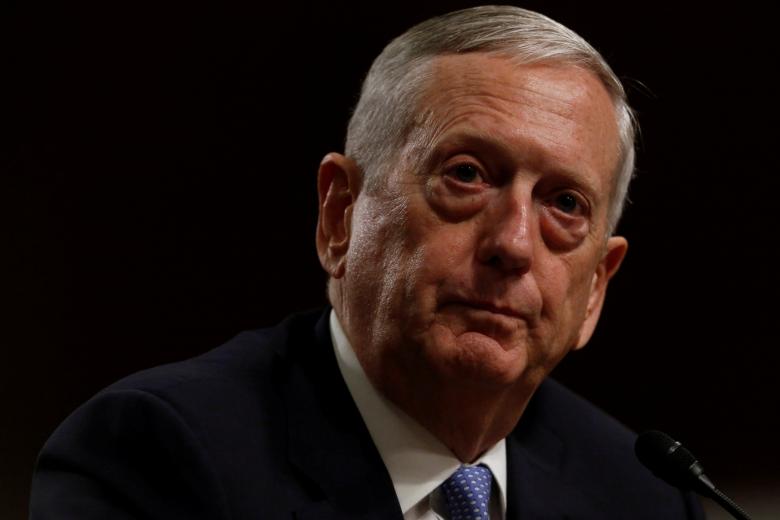Mattis to discuss THAAD missile system in South Korea talks

SEOUL - US Defence Secretary Jim Mattis said he would sound out ally South Korea on efforts to rein in North Korea's nuclear and missile programs as he arrived in Seoul on Thursday, including plans to deploy a US missile defence system there.
Mattis's visit comes amid reports that the North may be readying to test a new ballistic missile in what could be an early challenge for US President Donald Trump's administration.
"I will talk to them about THAAD absolutely," Mattis told reporters shortly before landing in South Korea, referring to the plans to deploy a Terminal High Altitude Area Defence (THAAD) system in South Korea.
South Korea and the United States say the deployment of THAAD is designed to protect against North Korea's growing nuclear and ballistic capabilities.
The North appears to have restarted operation of a reactor at its main Yongbyon nuclear facility that produces plutonium that can be used for its nuclear weapons programme, according to a US think tank, 38 North.
China has objected to THAAD, saying it will destabilise the regional security balance, leading to calls from some South Korean opposition leaders to delay or cancel it.
Retired Marine General Mattis's trip to the region, which also includes a stop in Japan, is his first since becoming Trump's Pentagon chief and is also the first foreign trip by any of Trump's cabinet secretaries.
Mattis is scheduled to hold talks with South Korean Prime Minister Hwang Kyo-ahn on Thursday, who is serving as acting president after President Park Geun-hye was impeached over a corruption scandal.
US officials have said the trip is meant to reaffirm ties with South Korea and Japan, US allies hosting nearly 80,000 American troops, and the importance of the region overall. That US reaffirmation could be critical after Trump appeared to question the cost of such alliances during the election campaign. He also jolted the region by pulling Washington out of an Asia-Pacific trade deal that Japan had championed. -Reuters







